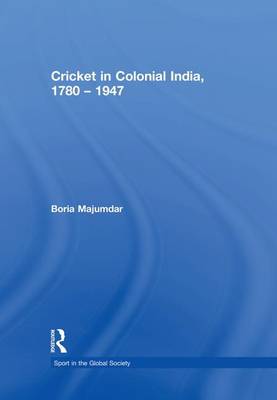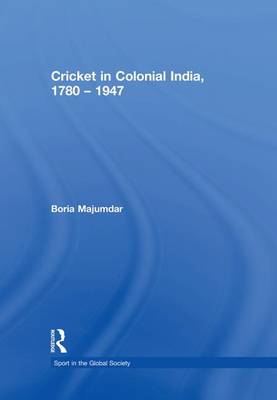
- Retrait gratuit dans votre magasin Club
- 7.000.000 titres dans notre catalogue
- Payer en toute sécurité
- Toujours un magasin près de chez vous
- Retrait gratuit dans votre magasin Club
- 7.000.0000 titres dans notre catalogue
- Payer en toute sécurité
- Toujours un magasin près de chez vous
Description
This is an exacting social history of Indian cricket between 1780 and 1947. It considers cricket as a derivative sport, creatively adapted to suit modern Indian socio-cultural needs, fulfil political imperatives and satisfy economic aspirations. Majumdar argues that cricket was a means to cross class barriers and had a healthy following even outside the aristocracy and upper middle classes well over a century ago. Indeed, in some ways, the democratization of the sport anticipated the democratization of the Indian polity itself.
Boria Majumdar reveals the appropriation, assimilation and subversion of cricketing ideals in colonial and post-colonial India for nationalist ends. He exposes a sport rooted in the contingencies of the colonial and post-colonial context of nineteenth- and twentieth-century India. Cricket, to put it simply, is much more than a 'game' for Indians.
This study describes how the genealogy of their intense engagement with cricket stretches back over a century. It is concerned not only with the game but also with the end of cricket as a mere sport, with Indian cricket's commercial revolution in the 1930s, with ideals and idealism and their relative unimportance, with the decline of morality for reasons of realpolitik, and with the denunciation, once and for all, of the view that sport and politics do not mix.
This book was previously published as a special issue of the International Journal of the History of Sport
Spécifications
Parties prenantes
- Auteur(s) :
- Editeur:
Contenu
- Nombre de pages :
- 196
- Langue:
- Anglais
- Collection :
Caractéristiques
- EAN:
- 9781138883512
- Date de parution :
- 12-06-15
- Format:
- Livre broché
- Format numérique:
- Trade paperback (VS)
- Dimensions :
- 170 mm x 244 mm
- Poids :
- 258 g

Les avis
Nous publions uniquement les avis qui respectent les conditions requises. Consultez nos conditions pour les avis.






